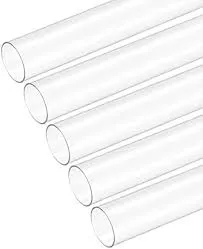Oct . 31, 2024 04:25 Back to list
hdpe water supply pipe
Understanding the Importance of HDPE Water Supply Pipes
High-Density Polyethylene (HDPE) pipes have emerged as a vital component in modern water supply systems. Their unique properties and advantages have made them a preferred choice for municipal, industrial, and agricultural water distribution. In this article, we will explore the characteristics, benefits, and applications of HDPE water supply pipes, highlighting their significance in fostering efficient and sustainable water management.
What is HDPE?
HDPE is a type of thermoplastic made from petroleum. It is known for its high strength-to-density ratio, making it an ideal material for pipes that need to withstand various environmental conditions. The production of HDPE involves a high-pressure process that ensures the material is durable and resistant to many chemicals, thereby extending its applicability in water supply systems.
Advantages of HDPE Pipes
1. Durability and Longevity One of the standout features of HDPE pipes is their exceptional durability. They can last for over 50 years under normal conditions. The pipes are resistant to corrosion, scaling, and biological growth, which commonly affect other types of pipes, like steel and concrete.
2. Flexibility and Lightweight HDPE pipes are significantly lighter than traditional piping materials, making them easier to transport and install. Their flexibility allows them to be shaped around obstacles, reducing the need for additional fittings and connectors.
3. Leak-Free Joints HDPE pipes can be heat-fused, creating joints that are as strong as the pipe itself. This feature minimizes the risk of leaks, promoting more efficient water delivery and reducing wastage.
hdpe water supply pipe

4. Reduced Friction Loss The smooth inner surface of HDPE pipes reduces friction losses, thereby enhancing the flow of water. This characteristic can lead to a reduction in energy consumption required for pumping, resulting in lower operational costs.
5. Environmental Benefits HDPE is fully recyclable, which makes it an eco-friendly choice for water supply systems. Additionally, the reduced energy requirements for the production and installation of HDPE pipes contribute to a smaller carbon footprint.
Applications of HDPE Water Supply Pipes
HDPE pipes are versatile and can be used in various applications. They are commonly employed in
- Municipal Water Supply Cities and towns utilize HDPE pipes for distributing potable water due to their reliability and long lifespan. - Irrigation Systems Agriculture greatly benefits from HDPE pipes, as they efficiently transport water to crops while minimizing evaporation and runoff. - Industrial Applications Industries use HDPE pipes for transferring wastewater and chemicals, thanks to their resistance to corrosion and various chemicals. - Fire Protection HDPE pipes are also used in fire protection systems, where a reliable and robust water supply is crucial.
Conclusion
In summary, the significance of HDPE water supply pipes cannot be overstated. Their durability, flexibility, and environmental benefits make them a superior choice for modern water infrastructure. As the world continues to grapple with water scarcity and pollution, investing in high-quality HDPE piping systems is a step towards sustainable water management. Not only do they provide a reliable solution for water distribution, but they also contribute to conserving resources and protecting the environment for future generations. As we advance towards more innovative water management solutions, HDPE pipes will undoubtedly play a pivotal role.
-
PVC Transparent Sheet Roll - Durable & Flexible PVC Plastic Sheet Roll for Industrial & Home Use
NewsJun.24,2025
-
High-Quality PVC PPR Pipes and Fittings Durable ERA PPR Solutions
NewsJun.10,2025
-
High-Quality Large HDPE Sheets & Large Diameter PVC Pipe Durable Large PVC Pipe Supplier
NewsJun.10,2025
-
High Density Polyethylene Cutting Board - Durable & Food Safe
NewsJun.09,2025
-
3 Inch PVC Pipe for Durable Irrigation Affordable & Reliable
NewsJun.09,2025
-
Premium PPR Plastic Water Pipe Fittings - Durable & Leak-Free
NewsJun.09,2025

